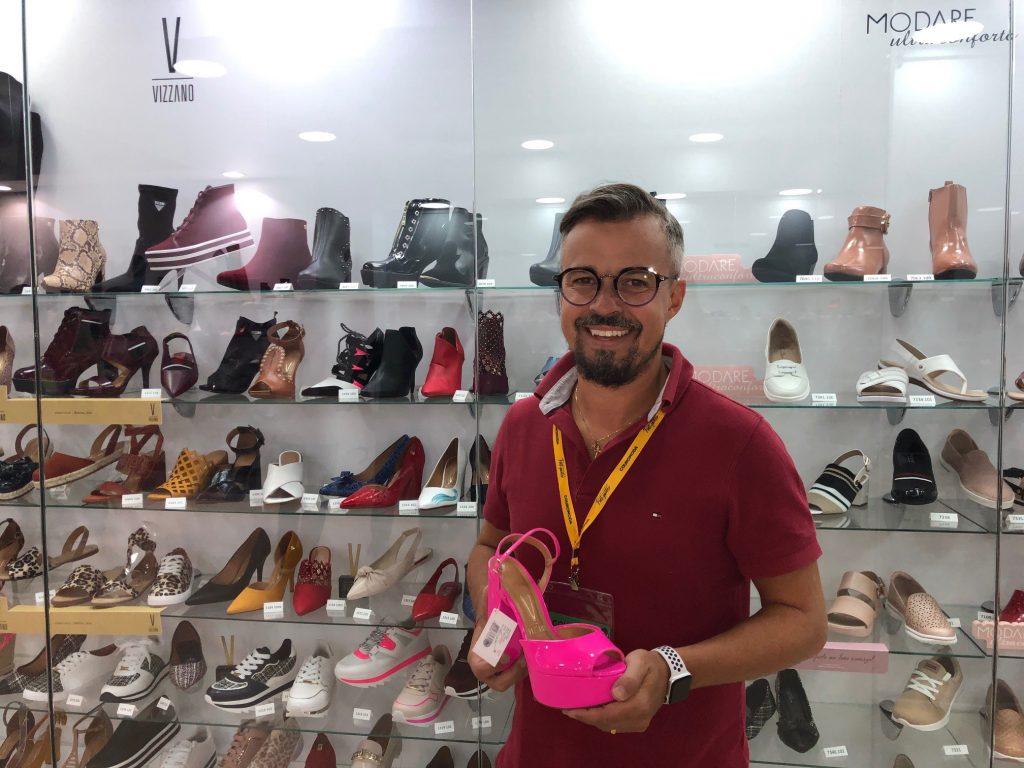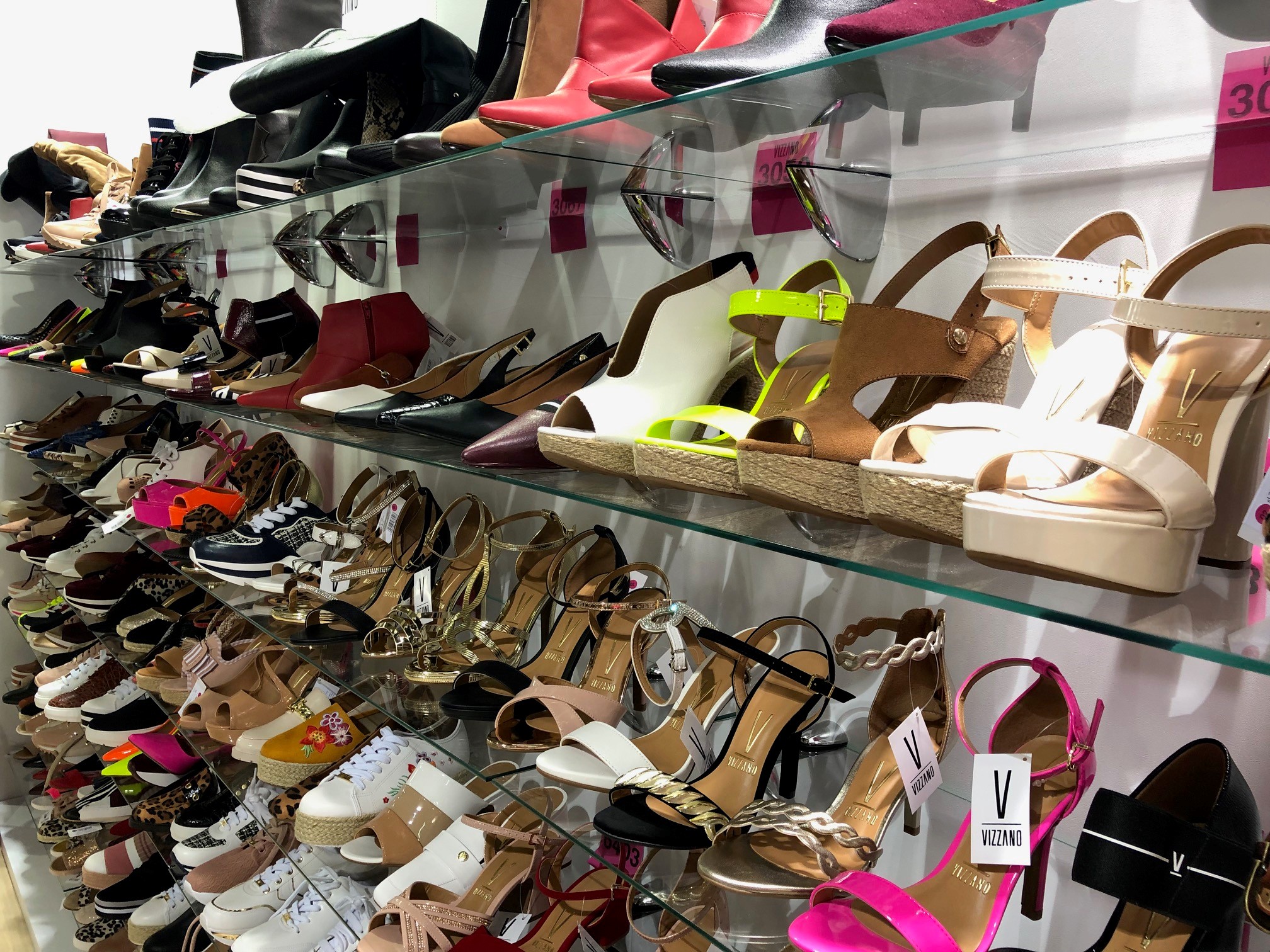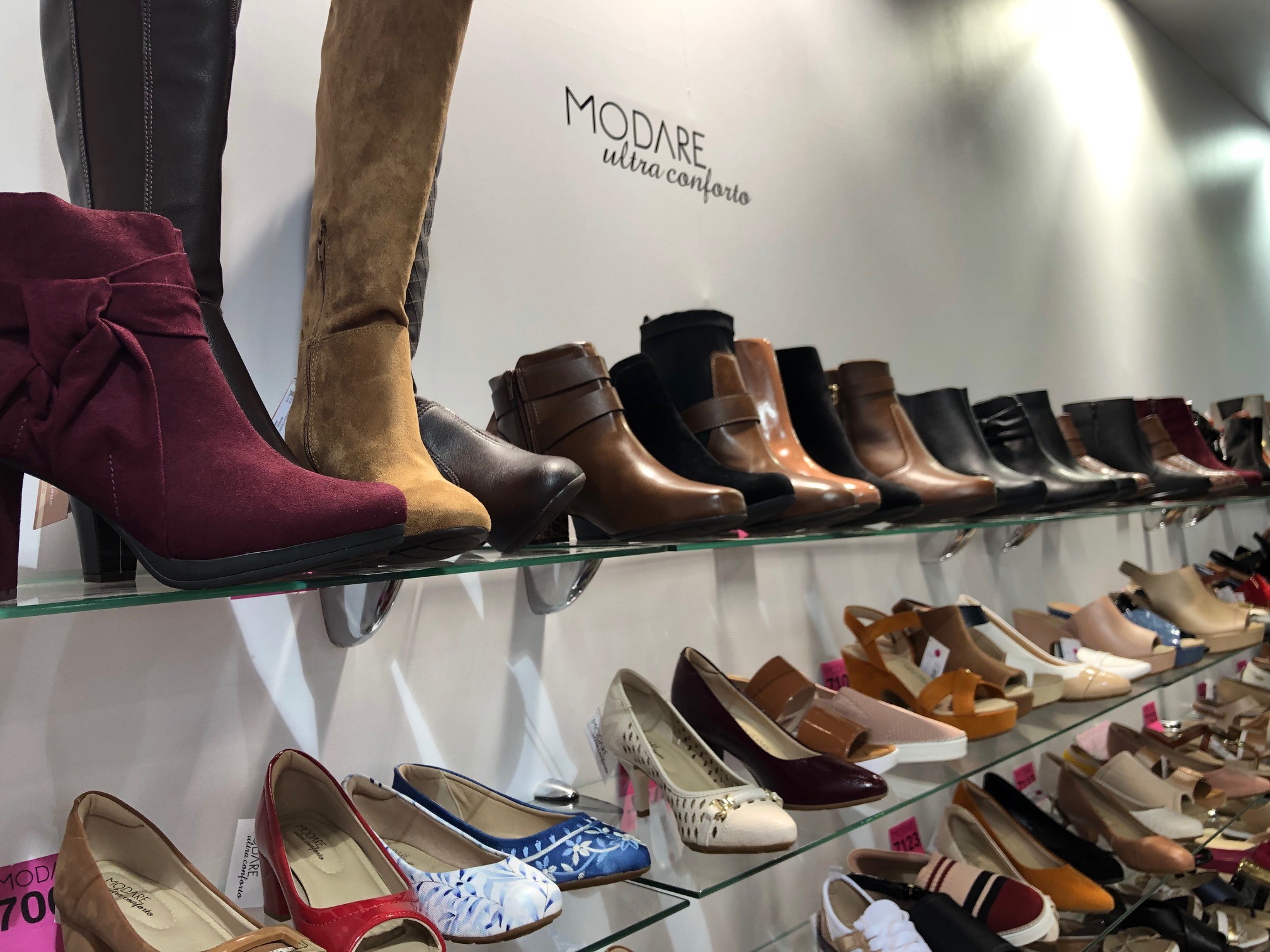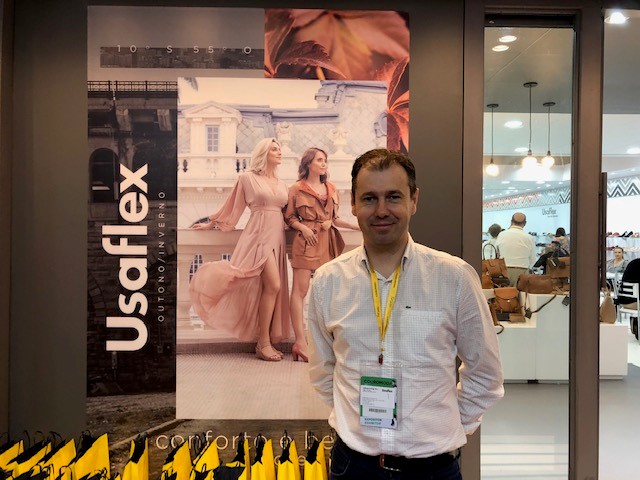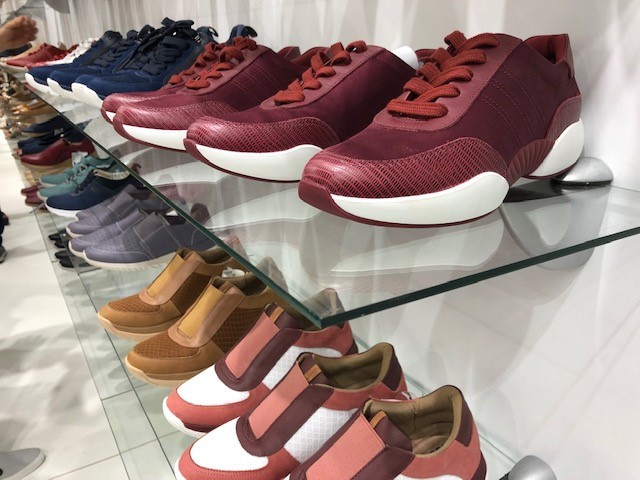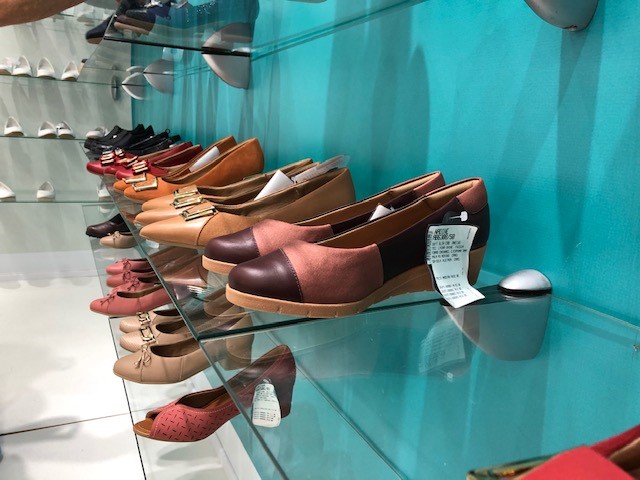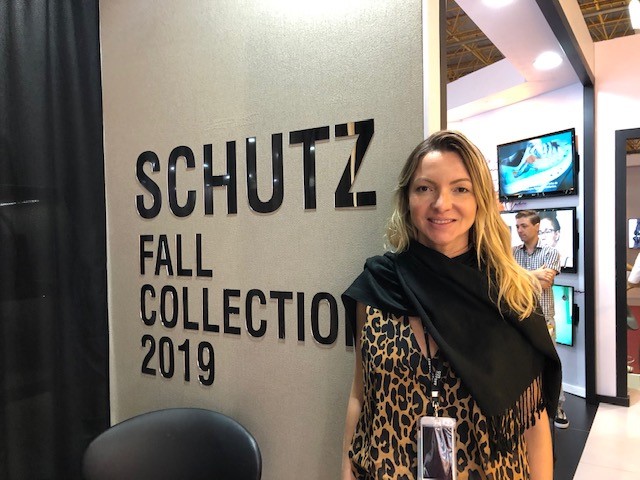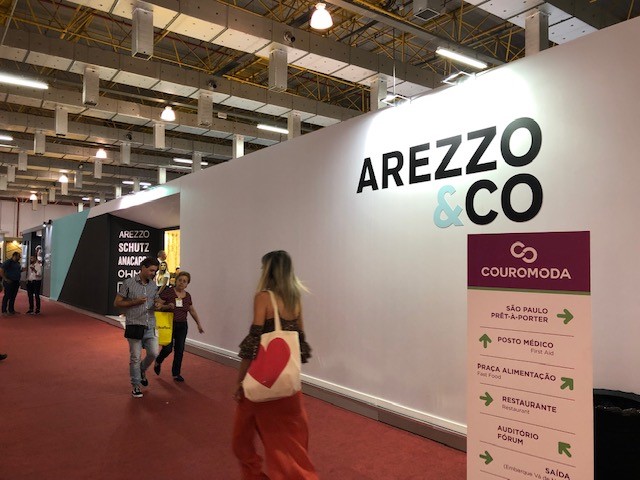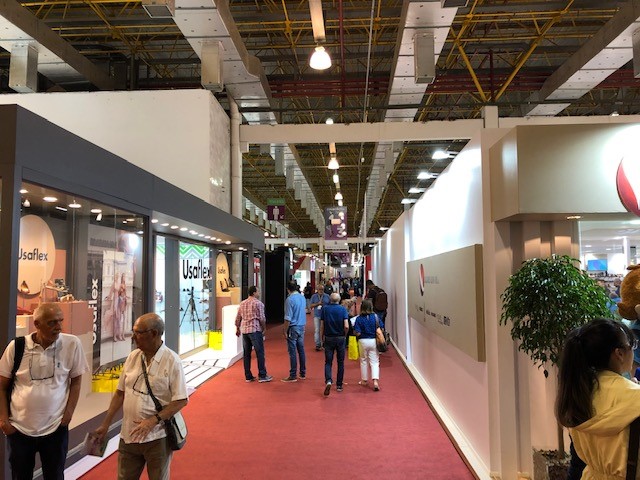São Paulo – Brazilian company Beira Rio sold 50,000 pairs of shoes to two Arab companies at Couromoda, the footwear and accessory show running until this Thursday (17) in São Paulo, according to its foreign sales specialist Fabio de Oliveira (pictured above). Half the shoes were bought by AYZ, a retail chain active in the UAE and Kuwait; the other half was purchased by store chain Al Masar, in Libya.
Oliveira said roughly 13% of exports between Beira Rio’s seven different brands go to Arab countries, especially when it comes to brands Vizzano and Modare Ultraconforto. “Vizzano shoes keep up with trends, with heels, open-toe shoes and sandals; Modare works on comfort, with shoes meant for working and day-to-day purposes,” the specialist explained. Beira Rio’s other brands are Moleca, Molekinha, Molekinho, Act Vitta, and Beira Rio Conforto.
“We cover all Arab countries in the Gulf and North Africa. The only one we don’t work with is Mauritania, and sales to Egypt have been slumping lately,” said Oliveira. His biggest Arab markets are Morocco, Algeria, Sudan, Tunisia, Libya, Yemen, Iraq, Kuwait, the UAE, Qatar and Oman.
Beira Rio makes 550,000 pairs of shoes a day, which means 110 million pairs a year, as per 2018 numbers supplied by Oliveira. About 15% of that amount gets exported. Arab countries bought some 1.5 million pairs last year.
“That was BRL 60 million in sales to Arab countries alone, and that will only tend to increase,” he said, adding that from 2012 to 2018, the market went from 200,000 to 1.5 million pairs sold. Overall, foreign fetched USD 200 million in 2018.
The biggest markets for Beira Rio are South and Central America, which take in 75% of the company’s total exports. The average price per pair is USD 10 – therefore the sale to Arab countries grossed some USD 500,000. Hanox Shoes has visited the Beira Rio stand, but it hasn’t placed any orders yet.
“This is being a good show; our stand is always crowded. Beira Rio is on a crescendo. We put out new product every 15 days. Our company is fast fashion, so we release 24 collections per year, and that’s at competitive prices, at least 30% cheaper than the competition. At a show like this we’ll move about 2 million pairs, and by next week we’ll be chasing clients again. We just never stop,” concluded Oliveira.
(Story continues after photo gallery)
Usaflex
Usaflex has been selling to Arab countries for ten years now, its export manager Jefferson Berz said. The biggest Arab market is Kuwait, followed by the UAE, Oman, Lebanon and Saudi Arabia. Established 20 years ago, the comfort footwear company currently ships to 40-plus countries, and 60% of its exports go to Latin American countries.
“Arab countries take in 8% of our exports. We hope to get to 15% by the end of the year,” said Berz. The manager also said he’ll take a trip to North Africa to become familiar with the market and meet up with prospective buyers.
The best-selling products to Arab countries are women’s shoes in leather, high and medium heeled shoes, and sandals. “Our products focus on comfort, sophistication and modernity. They are traditional designs, always with new materials and technologies,” added Berz.
Usaflex ships 7% of its production abroad. “We expect to get that to 10% to 15% by the end of the year,” he said.
Schutz
Schutz – one of the brands of Arezzo Co – has 47 reps in Arab countries, according to international business manager Joana Wichman. Kuwait, the UAE, Qatar, Saudi Arabia and Lebanon take in a combined 8% of the brand’s total exports. “We wish to increase that share to 12% this year, while keeping to those same markets,” said Wichman.
According to the manager, Arab buyers favor high heels, leather, golden tones and shiny details, which coincidentally are the most expensive items. Wichman said Couromoda is “living up to expectations, while not exceeding them.” She said the stand is yet to see any Arab visitors. Wichman called on the ANBA team not to take any photos of Schutz’s autumn-winter collection.
Arezzo Co owns five other brands besides Schutz – Fiever, Arezzo, Ana Capri, Owme, and Alexandre Birman. Some 10% of its output gets exported, mostly to Europe and the United States.
Translated by Gabriel Pomerancblum



